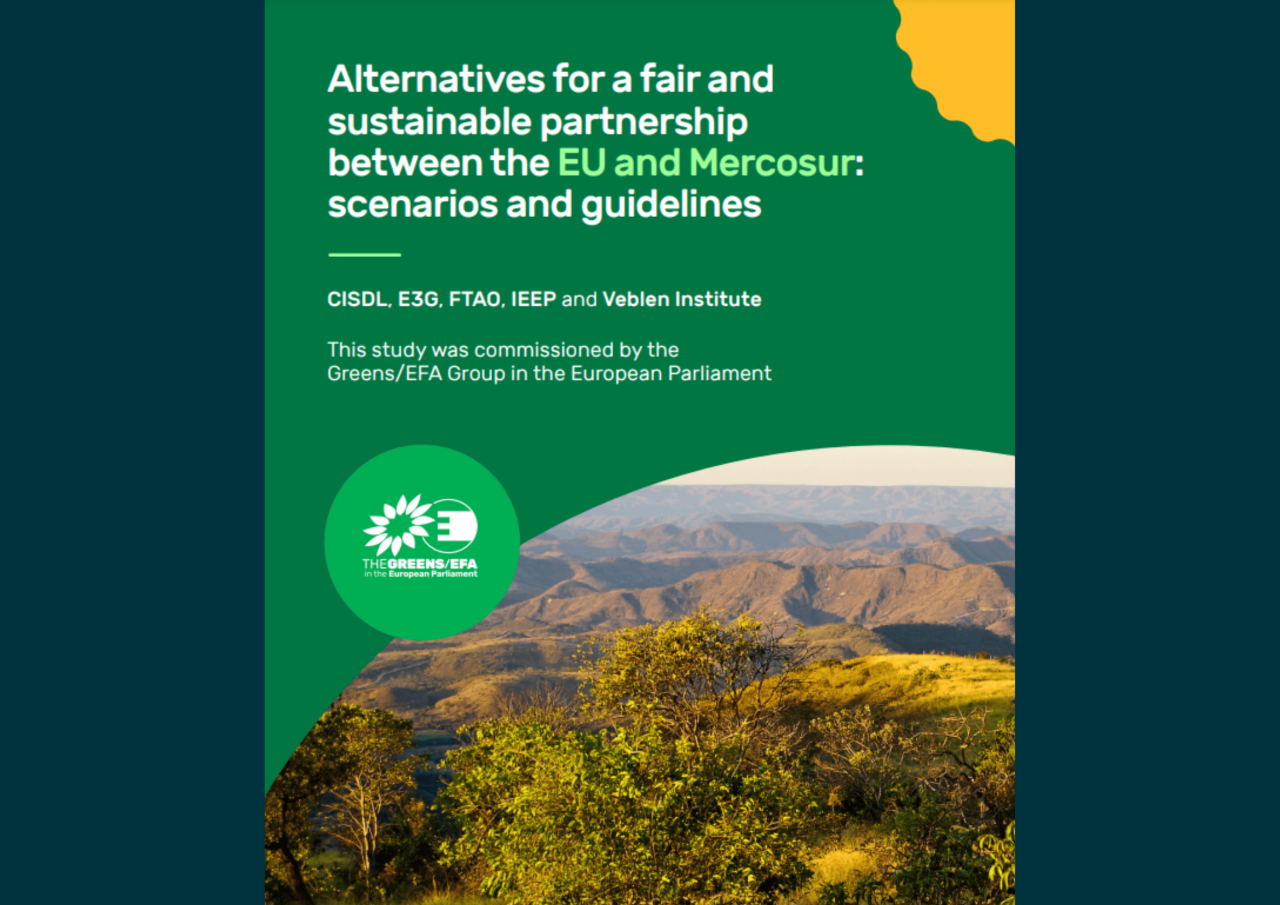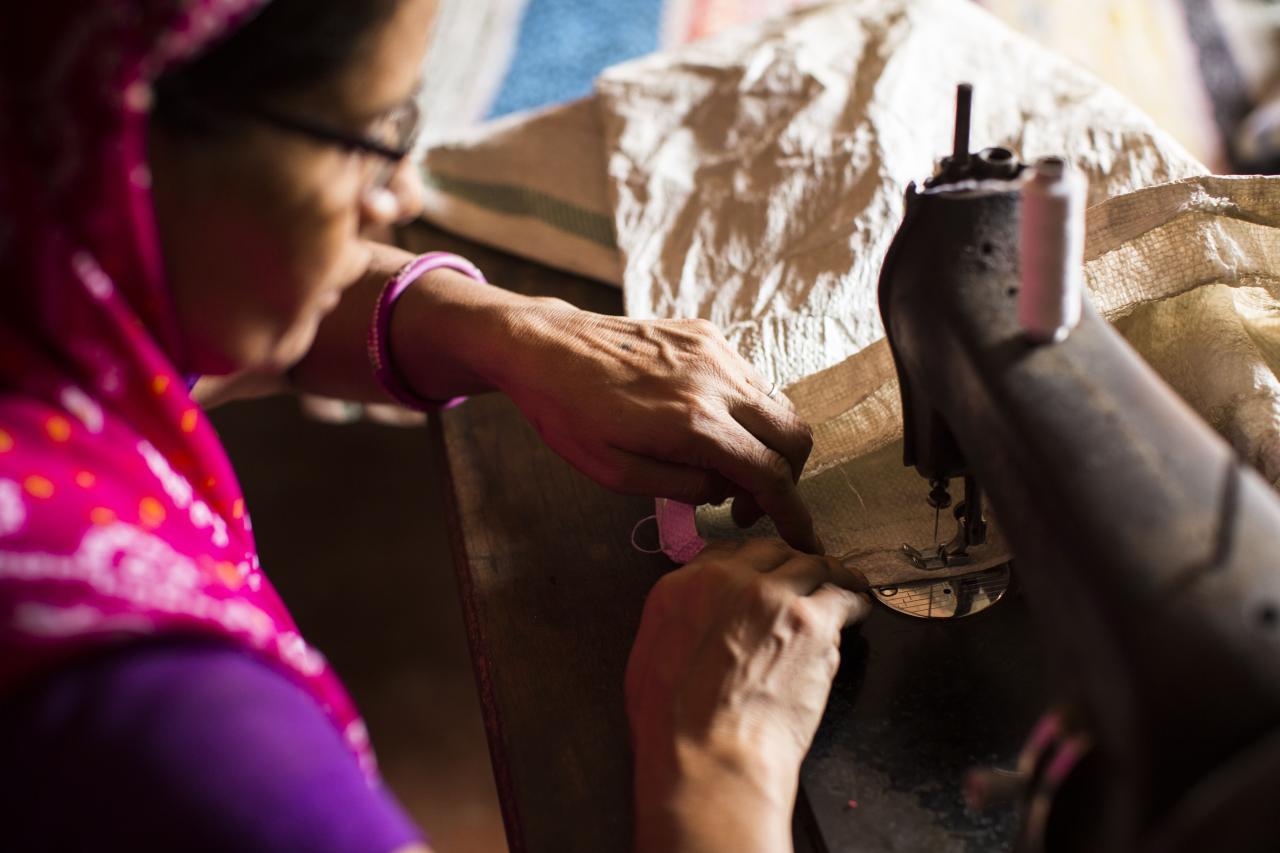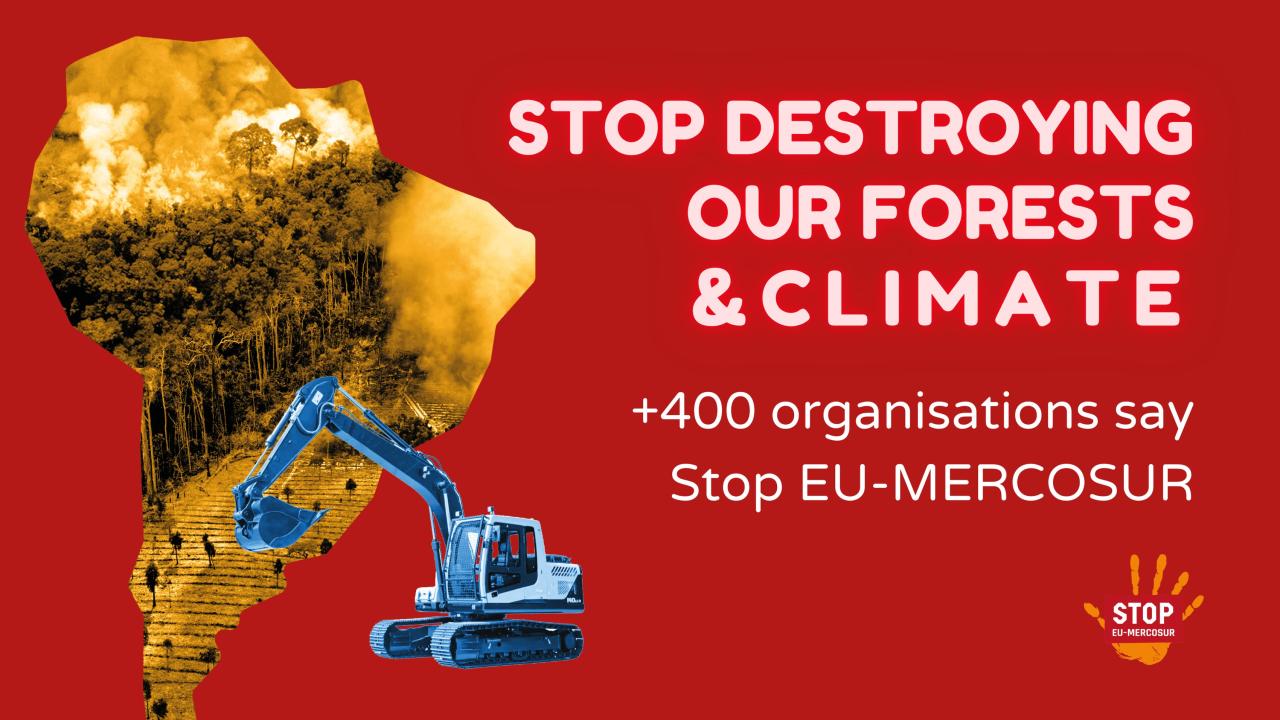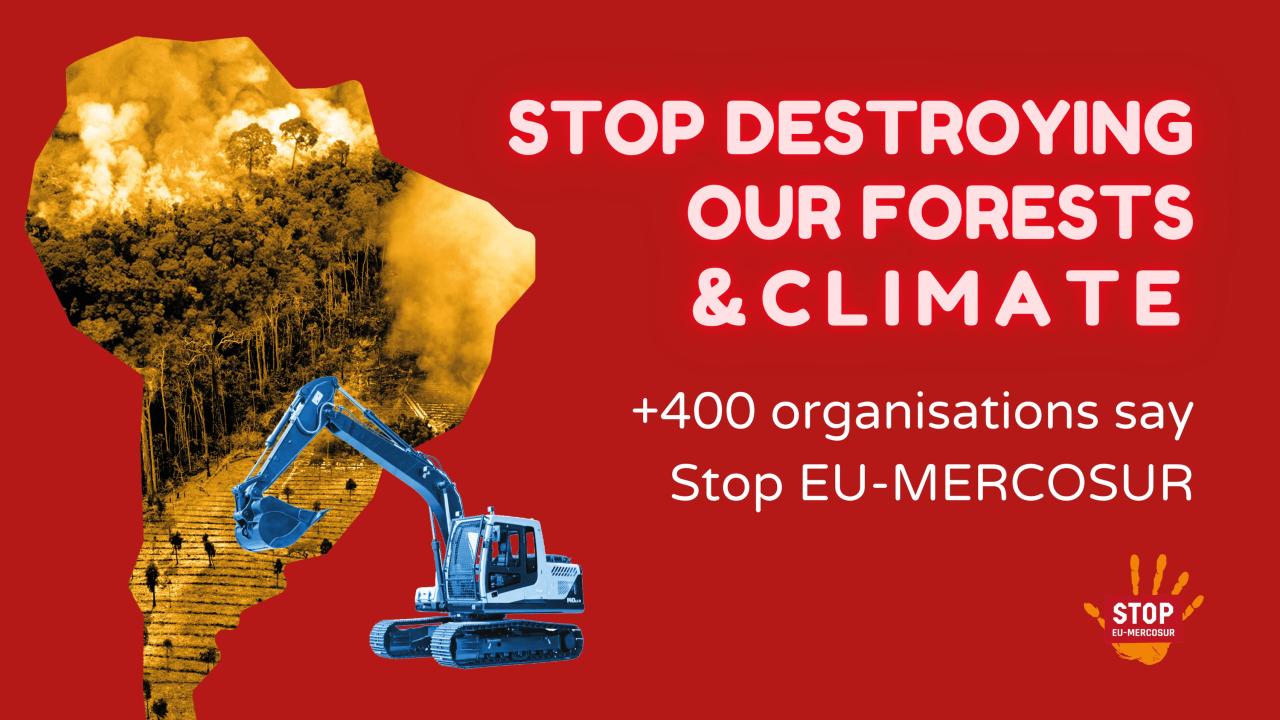Alternatives for a fair and sustainable partnership between the EU and Mercosur: scenarios and guidelines

AUTHORS: Pierre Leturcq and Eline Blot (IEEP); Dr Markus Gehring, Pr Marie-Claire Cordonier-Segger, Marios Tokas and Matheus Frederico Paes Garcia (CISDL); Emilie Kerstens (E3G); Virginia Enssle (FTAO); Mathilde Dupré and Stéphanie Kpenou (Veblen Institute)
In 2019, the European Union and the Mercosur countries (Brazil, Argentina, Uruguay and Paraguay) reached a political agreement towards a free trade agreement between the two regions, after two decades of negotiations. Gathering experts from the Centre for International Sustainable Development and the Law (CISDL), E3G, the Fair-Trade Advocacy Office to the EU, the Institute for European Environmental Policy (IEEP) and the Veblen Institute, this study Commissioned by the Greens/EFA group in the European Parliament, delves into a series of credible alternatives to the 2019 agreement.
On 28 June 2019, the European Union and the Mercosur countries (Brazil, Argentina, Uruguay and Paraguay) reached a political agreement towards a free trade agreement between the two regions, after two decades of negotiations. In the ensuing period, the path to ratification has been fraught with internal and external challenges. The sustainability impact assessment that should have informed the negotiations was completed long after the announcement that negotiations had concluded – a situation that, according to the EU Ombudsman, constitutes a case of maladministration.
The agreement was highly scrutinised and criticised inside and outside Europe, in particular for its potential environmental impact, once again putting the issue of EU trade policy sustainability in the spotlight.
The EU-Mercosur trade agreement promotes trade flows of goods that are incompatible with the objectives of reducing global emissions, reducing deforestation and protecting biodiversity. It relegates Mercosur countries to the role of agro-exporters and suppliers of mining and energy resources, trapping them in an extractivist model that is destructive for the environment and local populations. The agreement encourages EU exports in all sectors, regardless of their environmental and social impact (e.g. reduced customs duties on automobiles, irrespective of engine type, vehicle size or energy efficiency, and on plastic products and pesticides banned on the EU market for health or environmental reasons). The agreement would also encourage the entry of agricultural products into the European market subject to production standards that are far less stringent than European standards. This is the case for food products. Nearly 30% of active substances of pesticides authorised in Brazil are not approved in the EU due to their harmful effects on health and the environment. These regulatory differences in production standards also apply to meat. While Mercosur countries already account for over 50% of European beef imports, the agreement could increase EU beef imports from Mercosur by a further 23% to 52% by 2030 if the free trade agreement is fully implemented. Brazilian livestock farmers use antibiotics such as monensin as growth promoters – a practice strictly prohibited by the EU in the fight against antibiotic resistance. The meat industry is also one of the most concerned by forms of modern slavery listed in the Global Slavery Index, which affects in total more than 360,000 people in Brazil. Implementing this agreement could also exacerbate the destruction of ecosystems and undermine European efforts to combat imported deforestation. And the European regulation on imported deforestation would only provide a limited solution, notably because it does not cover all sensitive products and all forested land exposed to deforestation such as the Cerrado. Human rights of indigenous communities are directly threatened by the agreement, since areas at risk of deforestation often border indigenous territories.
In the EU, these challenges have materialised through outright opposition from certain Member States’ governments or national assemblies to the existing deal. In a resolution of 7 October 2020, the European Parliament emphasised that “the EU-Mercosur agreement cannot be ratified as it stands”. In its annual report on the Common Foreign and Security Policy adopted on 28 February 2024, the European Parliament however included a call to “the Commission and the Spanish and Belgian Council Presidencies to advance decisively and conclude the agreement with Mercosur before the end of the current parliamentary term, while keeping the highest level of ambition in relation to the enforcement of its sustainability provisions”. Attempts to amend this text failed. The agreement is also subject to strong opposition from civil society organisations: they stress its obsolete nature and the threat it poses to biodiversity, climate action and human rights. Additionally, Mercosur officials have asked for the terms of the agreement to be better balanced (on the opening up of public procurement markets or trade in goods, for example). They have also requested additional measures from the EU’s side to mitigate the economic repercussions of its autonomous environmental regulations, such as the deforestation-free products regulation, as well as climate finance and capacity building to support them in making these commitments. The recent election of a new climate-sceptic, far-right president in Argentina has brought new uncertainties. And unfortunately, the legislative proposals formulated during the first month of his mandate confirm the high risk of environmental regression (10). This change of government will test the European doctrine that had been forged with regard to other countries led by climate-sceptic presidents such as D. Trump or J. Bolsonaro – whose terms of office have been marked by stagnation and even regression in terms of environmental policy, namely not to grant new trade preferences to partners who renege on their climate commitments.
The emergence of these obstacles prompts a critical examination of the viability and plausibility of ratifying the current agreement in its present state – from an environmental, social and democratic perspective, but also in terms of the level playing field to be upheld in relation to production standards, in the context of farmers’ protests across Europe.
Gathering experts from the Centre for International Sustainable Development and the Law (CISDL), E3G, the Fair-Trade Advocacy Office to the EU, the Institute for European Environmental Policy (IEEP) and the Veblen Institute, this study delves into a series of credible alternatives to the 2019 agreement.
This work leads the authors to articulate a set of guidelines and policy recommendations for the next Commission towards a fair and sustainable partnership between the EU and the Mercosur countries as a regional bloc or on a more bilateral or even plurilateral basis. Commissioned by the Greens/EFA group in the European Parliament and coordinated under the Green Trade Network, led by IEEP, this study stands as a key contribution to the ongoing debate surrounding the future of EU-Mercosur relations. The first section provides an in-depth legal analysis of the current text of the EU-Mercosur agreement and the so-called “side letters” issued by each of the two Parties to address a number of issues that stand in the way of a ratification, in particular those related to environmental protection and the deal’s environmental impacts. Section two explores four alternatives, combined with actionable recommendations, to overcome the status quo and progress towards intensified cooperation between the two blocs on sustainability matters.
More From The Workstream

From trade wars to trade justice: less, fairer, better

The FTAO expresses its deep concern about the EU-Mercosur partnership agreement and its adverse consequences for people and the planet

No more toxic trade deals between the EU and Latin American countries
